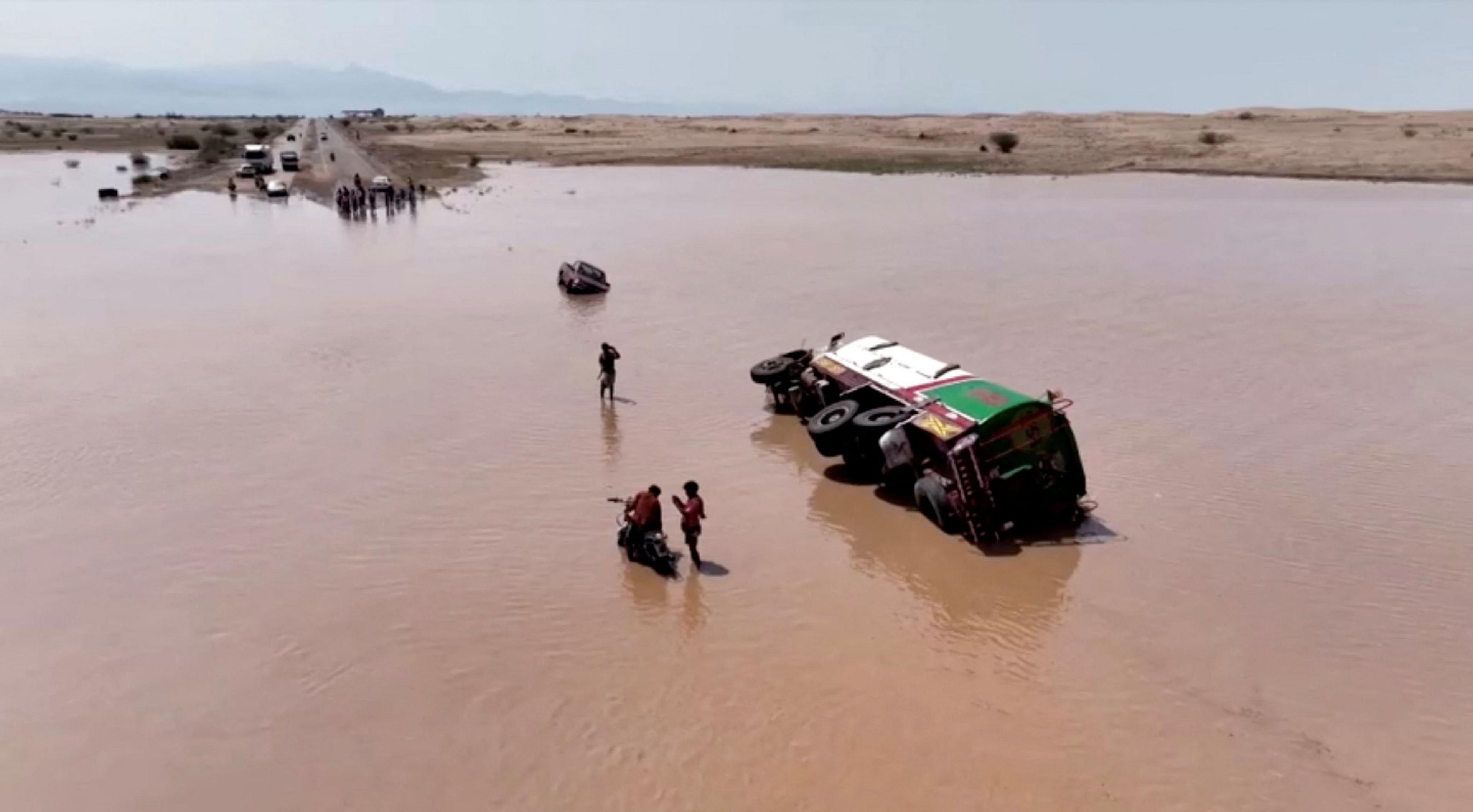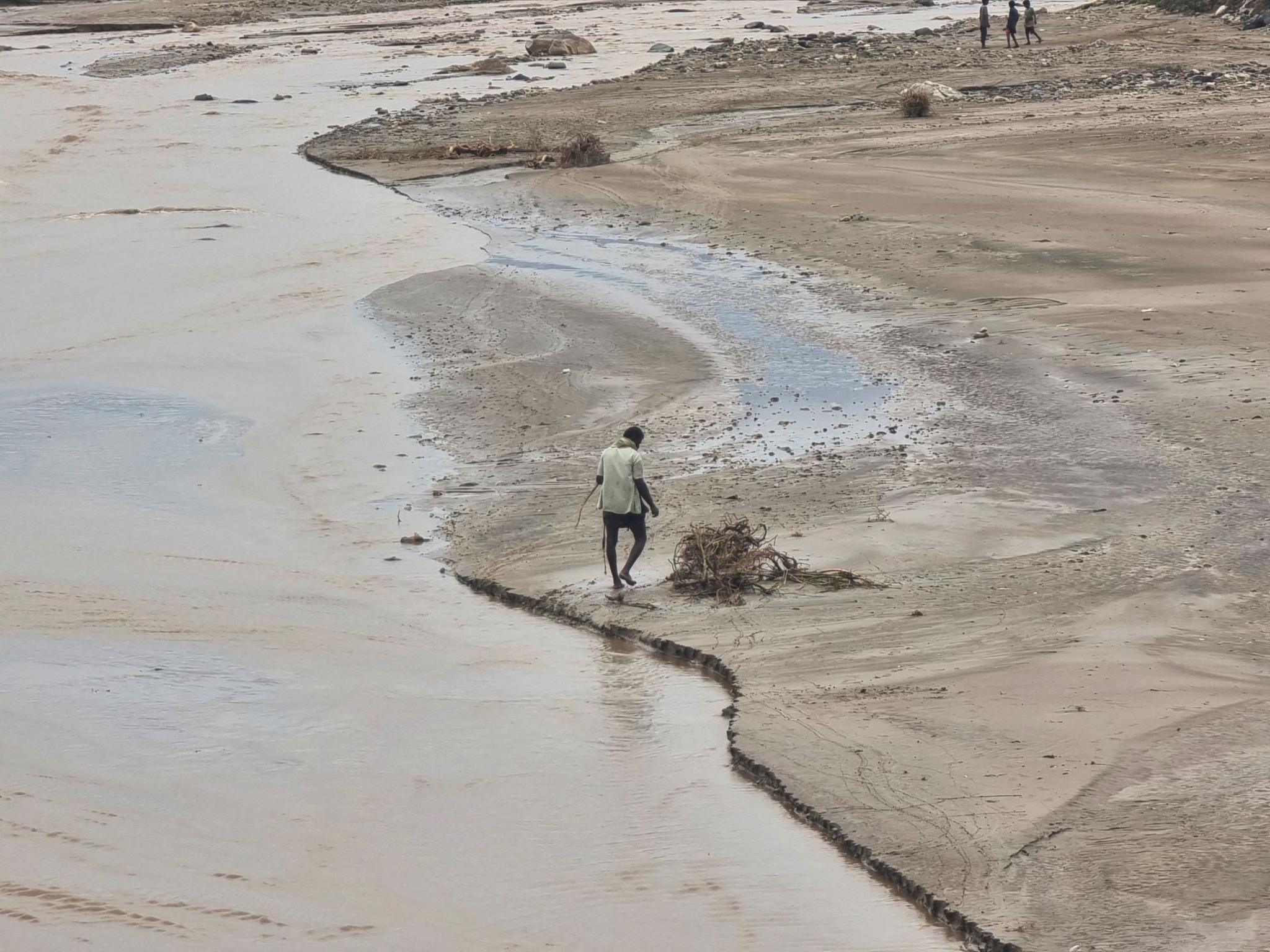Yemen flooding leaves at least 57 dead, UN says

Drone footage shows flooding in Hudaydah, Yemen.
- Published
Flooding in Yemen has left at least 57 people dead and thousands displaced, the UN has said.
More than 34,000 families were affected by the heavy rains, which began in late June and intensified in early August, according to the UN humanitarian affairs office (OCHA).
It has worsened the country's "already dire humanitarian situation" as millions grapple with the impact of a civil conflict that began nearly 10 years ago, the UN body added. , external
"The magnitude of this disaster is overwhelming, and the humanitarian needs are enormous," said Matt Huber, the International Organization for Migration (IOM)'s acting chief of mission in Yemen.
Regions affected by the flooding include Hudaydah, Hajjah, Taiz and Marib.
Hudaydah is among the hardest hit areas. Flooding there has displaced more than 6,000 families and caused widespread destruction to homes and essential services, according to the UN.
Roads were closed and access to affected areas remained challenging, the body added.
The IOM says it is ramping up emergency operations in the country.

Hajjah is among the areas affected by the flooding in Yemen, according to the UN.
Domestic media has also been reporting on the devastation caused by the heavy rains in the country.
Citing a body in charge of displacement camps in the province, local and privately-owned news channel Belqees TV said five people had died and 10 others injured in Marib.
Meanwhile, independent website Al-Masdar Online accused the country's Houthi rebels of staying silent on the destruction in areas under their control in the Hudaydah province.
The Houthis are an Iranian-backed rebel group which considers Israel an enemy.
Al-Masdar Online said the "biggest disaster" had occurred in the districts of Hudaydah province.
Yemen has been devastated by a conflict that escalated in 2015, when the Houthis seized control of large parts of the country and a Saudi-led coalition of Arab states launched a military operation to restore President Abdrabbuh Mansour Hadi's rule.